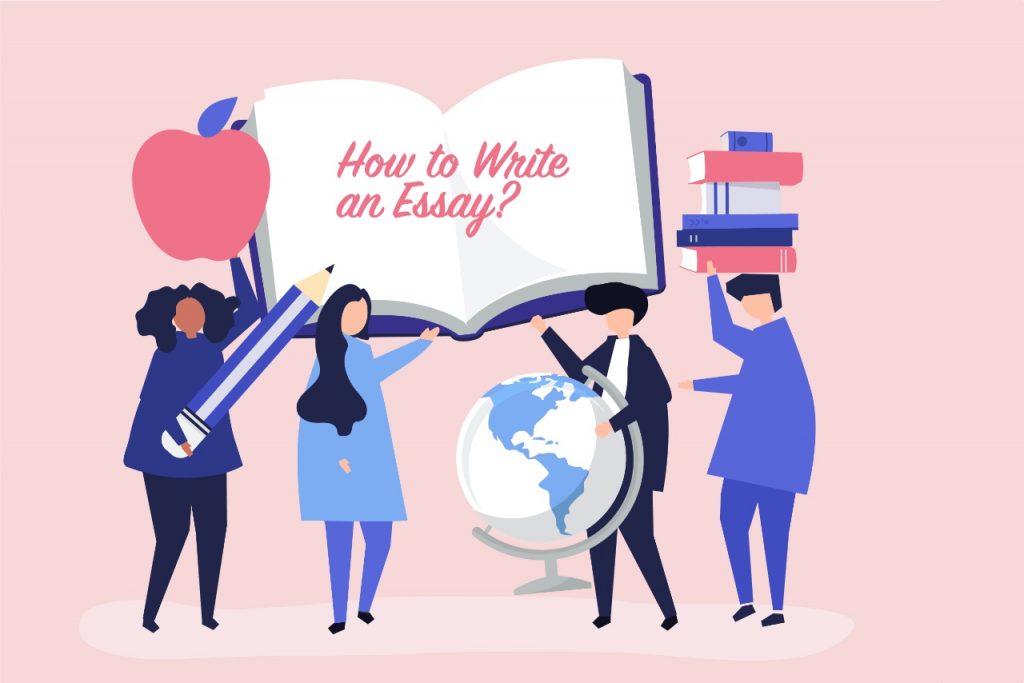Every essay has multiple essential components that must be located in a strict order to ensure the main message’s effectiveness and central idea. That is why one must dedicate enough time to find out what is the actual central claim to be developed before starting researching and writing. Otherwise, that would be wasting time and effort. It does not matter whether the essay topic is determined by an instructor or a student who may enjoy the opportunity to develop one’s own topic. The only crucial requirement is to have one specific central idea that can be developed and defended in the paper following the rules discussed below. Only the unity of the precise topic, finding good sources, and putting everything in order will result in an A-level essay.
Getting Acquainted with Essay Writing
Before opening your word processor and typing your thoughts there, reread the guidelines several times. Do not fall into the same trap that already failed many other students. Professors often provide lengthy and tricky instructions; thus, attentive reading and highlighting all crucial requirements will help you to save nerves and avoid low grades. Always make sure you understand what is expected. Some of the common mistakes in essay writing are the following:
Argumentative vs. Descriptive Essay
It is crucial to realize the differences between these types of essays as argumentative ones presuppose the development of the strong claim and your own position regarding a certain issue. In contrast, descriptive essays, obviously, describe something without any arguments and counterarguments.
Summary vs. Literature Review
While the former presupposes short but detailed retelling of the main points of one source, for example, as in an article review, the latter implies the synthesis of ideas taken from various sources regarding one specific idea. A literature review also requires the central claim to unite the entire discussion, while students often complete summaries of all sources relevant to the topic one by one. This is completely wrong; that is why it is obligatory to learn more about the type of the requested essay before starting writing.
How to Plan Your Essay?
The first step in developing the ideal essay is narrowing down the general topic since one could not cover all the peculiarities of “The Lord of the Rings” trilogy and its impact on the development of modern fantasy literature in just one essay. However, one specific aspect of this broad topic might be properly researched and defended; for instance, think about the role of friendship in this saga and what does it represent. This topic is more precise and serves as the basis for future steps:
Develop a Thesis Statement
Basically, this is the point that you claim to be true and will develop throughout the entire paper. Your position must be explicit, very focused, include your key points, and refute possible counter-arguments. Treat it as the precise roadmap to introduce the essay to a reader. Thus, including it at the end of the introduction part.
Develop Key Arguments and an Outline
Once you know the main arguable claim, you may outline all included arguments to make the research easier. The key secret of how to write an essay with the ideal structure is to dedicate a separate paragraph to each main point and counterargument mentioned in your thesis statement. Writing down the outline with all key components of the planned argument will help you to visualize the structure of the whole essay.
How to Do Research for an Essay?
No claim is valuable if credible facts and data do not support it. That is why it is crucial to know what you are going to write about before starting researching so that attention will be dedicated to relevant for your topic sources only. Be prepared to change the preliminary outline as additional ideas may emerge during the research. At the same time, don’t be afraid of controversial topics and always try to find the sources that will prove your position and reasonably refute the opponents’ ones. It is also extremely important to use only credible and scholarly sources to ensure the validity of supporting evidence. Generally, acceptable good sources for academic essays include the following categories:
Articles in scholarly journals, preferably published within the last five or seven years. Such articles are often peer-reviewed, which makes them highly credible and most important sources. Non-fiction and scientific books published by reputable organizations, such as a university press. Websites of educational institutions or governmental organizations located on .gov, .org, and .edu domains. Reputable newspapers’ or specific companies’ websites that are usually located on commercial websites with .com domains. These sources are useful for obtaining current news or data.
The number of required and obligatory sources is usually specified in the essay’s guidelines. In case there are no specific instructions, just make sure each of the main arguments is supported by at least one proper source. One important rule while conducting research is to take notes. When you are reading sources, you find good quotes, facts, or data that might be useful for your essay. It will be hard to find them again when needed; thus, copy those useful parts, including original authors and page numbers. You will not use all of them, but the essential pieces of evidence will be gathered in one place to make the process of actual writing much easier.
How to Write a Good Essay?
When the main ideas are developed, and all supporting facts are found, the process of writing the essay itself should be less stressful. Consider the experience of other academic writers who managed to complete thousands of successful tasks already. Edubirdie.com writes essays following strict rules of academic structure and always checks whether these elements are present – and a good grade is guaranteed whether you seek their assistance or just follow the same rules yourself while writing:
Introduction
Try to grab the attention of your audience from the very beginning. Use any effective hook that might help to achieve this aim: an interesting quote or striking fact. Then present a general background of the topic to establish the context and narrow it down to the specific problem understudy in a few next sentences. End the introduction with the thesis statement you developed and polished earlier in order to introduce your position and the main points to be discussed.
Body Paragraphs
Each paragraph should be dedicated to a certain aspect of the thesis statement, and all of these elements must be evidently connected. For example, some paragraphs in an argumentative essay will discuss the benefits of a certain phenomenon, while others will include its drawbacks and counterarguments. Start each paragraph with a topic sentence that introduces its content and links it back to the thesis statement. Provide some explanations or restatements if needed. Include supporting examples from previously gathered materials as it is a must. The good idea is to utilize various techniques of including someone else’s ideas in your essay: summary, paraphrasing, and direct quoting. After that, proceed to the analysis and your explanations regarding how the provided quote supports your main idea. Finally, wrap up the paragraph with the concluding sentence that summarizes the discussed subpoint and transitions to the next one. Repeat the same steps in the next body paragraph.
Conclusion
While this part must not present any new information, it is no less important than the other two elements of the essay’s structure. Firstly, it should remind the thesis statement to the audience by including its paraphrased and restated version. Secondly, the conclusion provides a short synthesis of all main points discussed in the body part. Finally, it includes the final statement, which is the essence of the entire essay. The conclusion often needs an explicit call to action, for example, when you argue for a specific policy’s development.
How to Finalize Your Essay?
Adding the full stop after the last word of the conclusion does not mean that the process is over. In fact, the proper finalizing stage may take as much time as the processes of researching and writing together.
Grammar and Proofreading
Leave the essay for some time and reread it later. This approach will ensure a fresh perspective, as reading the essay when you are already tired of writing will prevent you from detecting mistakes. While reading the completed work, pay attention to grammar and proofreading and the proper style of writing and logical structure. Learn the most common comma mistakes in writing.
Crosscheck the Submission Guidelines
Review the instructions and make sure that nothing is omitted. Checking guidelines one more time prior to submission may be extremely helpful, as there were cases when students misunderstood tasks and had to re-do their essays from scratch. While this situation is not pleasant at all, it is still better than receiving a failing grade due to the lack of attention.
Essay Formatting Styles
Make sure you are consistent with formatting throughout the entire essay. Do not mix different essay formatting styles. Instructions usually specify the required essay formatting style; some of the most popular ones are APA, MLA, and Chicago/Turabian. You have already included appropriate bibliographical information for all used quotes and data. Now, just make sure the paper possesses a proper general layout, in-text citations formatted in a similar way, and an appropriate References or Works Cited page. Guides for general requirements and samples of MLA style and many other ones can be found in the free access.
Plagiarism Checker
The Internet provides multiple opportunities not only for proper research but also for final proofreading and plagiarism prevention. Do not hesitate to use any available plagiarism checker or essay checker and detect potential issues before you submit the final variant. It will not take much time, but provided benefits are worth these efforts.
Summing up
One must remember that the process of essay writing requires substantial time for all stages—the night before a submission is definitely the worst time to start writing. Completing an essay in a hurry will undermine the quality of research, development of argument, and the quality of writing itself. That is why it is always recommended to start writing tasks far in advance to cope with all obstacles one by one without falling into panic and despair. Writing a good essay usually requires reviewing multiple resources to find good ideas and facts to support the main claim. Academic sources are usually written with sophisticated language that requires more effort to grasp the meaning. That is why time matters, especially in the case of difficult or controversial topics when it is hard even to find relevant resources. Always remember that procrastination is the student’s worst enemy. Finally, knowing all the stages and expected deliverables in essay writing are beneficial for students. They can now write the perfect assignments themselves and observe all the required elements included in the essays completed by other expert writers. In any case, the learning process is advancing, contributing to overall students’ success.



